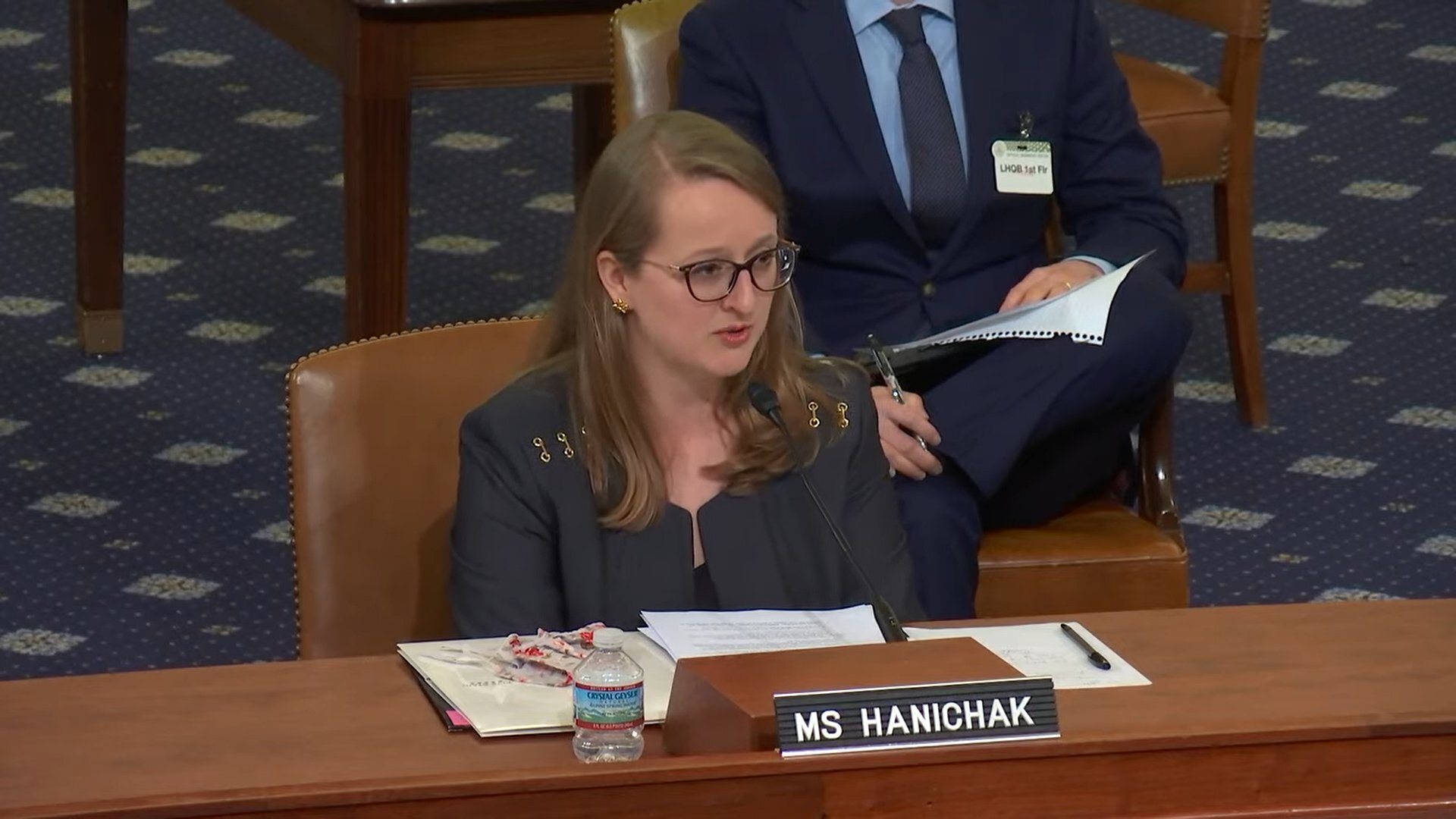Oral Testimony of FACT Government Affairs Director, Erica Hanichak:
Chairman Pascrell, Ranking Member Kelly, all – thank you for holding this important hearing.
I am here on behalf of the FACT Coalition and its more than 100 civil society, business, and labor members to discuss bipartisan reforms that will help mitigate tax dodging and improve U.S. tax compliance. In the wake of the Pandora Papers that exposed widespread corruption and tax evasion through U.S. financial instruments, this hearing could not be more timely.
As I will describe, it is imperative that Congress fulfill its oversight and appropriations role to aid the Administration in denying financial safe haven not only to tax evaders but also to drug traffickers, human rights abusers, kleptocrats, terror financiers, and sanctions dodgers.
The Problem
The fact is simple: the U.S. has become one of the most secretive jurisdictions in the world. This undesirable status harms average Americans, undermines our national security, weakens democracy, and erodes our tax base – and that of countries around the world.
The Pandora Papers opened the world’s eyes to the insidious effects of this secrecy. Political elites, criminals, and adversaries exploit offshore financial systems that are not “offshore” at all, but rather nurtured in the United States – in our own backyard.
For instance, a sugar baron and vice president of the Dominican Republic sought to evade new transparency measures enacted by the Bahamas, itself an historically opaque tax haven. Facing scrutiny of his offshore funds, he instead chose to move his assets to the tax haven of South Dakota.
In another case, Colombian clothing magnate José Douer Ambar was implicated in laundering money for an infamous drug cartel. Discovered by U.S. investigators, he was forced to forfeit $20 million to the United States. But that pales in comparison to the $100 million he was believed to have tucked safely away in a trust with South Dakota ties.
The Pandora Papers writ large have pointed the finger squarely at U.S. trusts as one of the most significant gaps in the U.S. regulatory regime, alongside other anonymous entities. These trusts create a major blindspot for law enforcement and tax authorities in ensuring compliance with the law.
According to a 2019 analysis by Global Financial Integrity, more personal information is needed to obtain a library card in all 50 states than to establish a legal entity that can be used to facilitate tax evasion, fraud, money laundering, and corruption.
A 2020 Treasury analysis based on IRS data found that legal entities were used in a “substantial portion” of cases to commit tax evasion and fraud.
The Solution – Corporate Transparency Act
That’s exactly why the Corporate Transparency Act is so important. Passed by Congress in January, this new, bipartisan law will give officials new tools to enforce U.S. law, counter tax evasion and fraud, and support U.S. national security.
The Corporate Transparency Act was enacted under the Trump Administration and now has its first draft rule under the Biden Administration. The Act reasonably requires corporations, limited liability companies, and “other similar entities” to disclose their true, natural owner to a secure directory housed and maintained at Treasury’s Financial Crimes Enforcement Network.
The Corporate Transparency Act is the most significant update to the U.S. anti-money laundering framework in 20 years.
According to the Act, information is to be made accessible to authorized law enforcement officers, national security officials, the IRS, and federal functional regulators, as well as financial institutions, like banks, that have requirements to “know their customer” under applicable laws.
As this was just released yesterday, the FACT Coalition is still digging through the 188-page draft rule, but we can confidently say that the Treasury Department and FinCEN are to be commended for delivering a robust draft rule on the Corporate Transparency Act within the timeframe identified by Congress.
Two things have caught our attention that will help authorities go after Pandora’s notorious abusers:
- First, the draft rule defines a “reporting company” broadly enough such that certain trusts not expressly exempted by the law – and other notoriously opaque entities – will be required to report their beneficial owners.
- Second, the draft rule requires new and existing entities to report information in a truly timely fashion, equalling or surpassing international standards on beneficial ownership disclosure.
The draft rule likewise demonstrates FinCEN’s effort to partner with legitimate businesses to ensure a directory provides useful information for law enforcement, and keeps the cost of compliance for businesses low. Treasury officials this week pledged costs of less than $50. Steps like verifying the data as it is entered into the directory – for instance, pinging drivers license numbers off an existing government database – would further help keep compliance costs low and data quality high.
On the next rulemaking, Congress should reiterate that authorized law enforcement and IRS officials should have timely and uncomplicated access to the directory.
Congress should also note that there are certain trusts and other entities exempted from the Corporate Transparency Act and subsequent draft rule that may still pose tax evasion and other risks. Congress should examine these exemptions and consider if they warrant further legislative action.
Finally, FinCEN will need additional resources and staff to finalize a rulemaking and stand up a database that meets modern standards in security and data quality. Congress should appropriate additional funding to meet the 21st century financial threats that our country faces.
Conclusion
In conclusion, despite the strong rule, Congress still has an important role to play over the next year in ensuring that the U.S. financial system is not a vehicle for illicit finance, and this subcommittee hearing is an excellent first step.
We can discuss more ideas for Congress during the Q&A. Thanks, and I welcome your questions.
—
A copy of Erica Hanichak’s written testimony can be accessed here.

